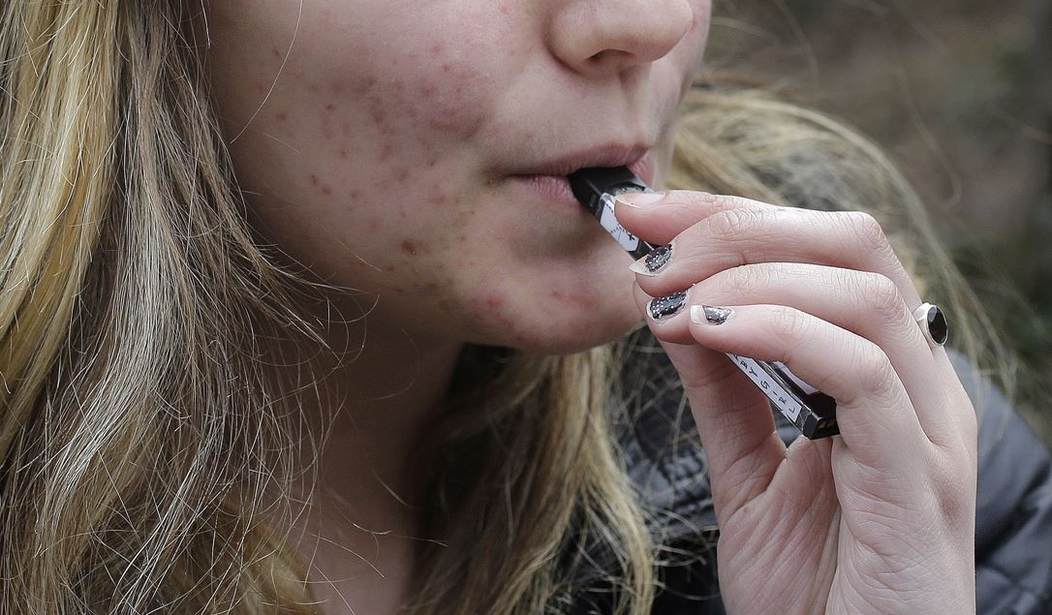On March 4, the U.S. Food and Drug Administration (FDA) released a statement the vaping community long assumed to be true: mom-and-pop vape shops are not the major culprits selling kids nicotine and tobacco products. Rather, a large number of convenience stores, grocery stores, and big-name retailers repeatedly sold e-cigarettes and other tobacco products to minors over the past year, according to FDA compliance check data.
FDA sent a letter to Walgreen Co., parent company of Walgreens stores, “to request a meeting to discuss” the company’s plans to combat youth vaping. According to FDA, Walgreens stores sold e-cigarettes to minors about 1,800 times over the past year. Walgreens wasn’t alone, as FDA found 14 other large companies, including major gas station franchises BP, Citgo, Exxon, Mobil and Sunoco to have “violation rates between 34-44 percent of all inspected stores.”
On the other hand, vape shops were not among the 15 biggest violators. However, the industry was still rebuked by the FDA. More than 40 companies were sent letters from FDA “seeking information” on whether their products were compliant with “deeming regulations.”
Although a vast majority of vape shops were not found to be selling e-cigarettes to minors, the FDA report might be too little, too late. This year, more than 300 bills have been introduced in state legislatures to regulate, tax, and even prohibit sales of vaping products in more than 35 states.
Leading the ban bandwagon, New York is poised to prohibit the sale of flavored products, with California, Connecticut, Hawaii, and New Mexico also considering similar bans. Washington state and Vermont are on the brink of passing draconian taxes that would establish a 95 percent and 92 percent wholesale tax on vaping products in each state, respectively.
In an even more peculiar policy proposal, lawmakers in Connecticut, Iowa, and Nebraska have introduced legislation that would increase the age to vape from 18 to 21, yet still allows persons to purchase combustible cigarettes at 18.
Recommended
What state lawmakers apparently do not understand is that these gratuitous taxes, onerous regulations, and preposterous prohibitions unduly threaten the mom-and-pop vape shops that are nowhere among the 15 worst violators according to FDA. Republicans and Democrats are pushing forth legislation that will effectively vaporize thousands of small businesses.
Moreover, legislators should be well aware that the booming e-cigarette industry has a strong positive impact on local and state economies. One analysis found vape shops “generate annual non-online sales of more than $300,000 per store,” and average $26,000 in monthly sales. A study of vape shops in the San Francisco Bay area found they employed on average three workers per store, with shops ranging from two to eight employees.
Even more troubling, according to FDA compliance data, minors are illegally obtaining combustible cigarettes far more often than electronic cigarettes. Of the 468 compliance checks conducted in New York over a thirteen-month period from 2018 to 2019 where stores were found in violation of selling to minors, only 41 were instances of selling an e-cigarette, whereas 200 violations involved sales of cigarettes and 227 violations involved selling cigars to minors. It should be noted that FDA performed a total of 6,773 compliance checks across the Empire State during that time frame.
Although the large number of youth using e-cigarettes is a cause for concern, state lawmakers should avoid stifling the industry with exorbitant taxation and burdensome regulations. FDA data finds that a vast majority of vape shops are not selling to minors. Therefore, these enterprises should not be burdened with reactionary policy. More importantly, policymakers should understand most vape shops are not in the business of profiting off sales to minors. Actually, they’re running businesses that help smokers quit noxious combustible cigarettes.
Lindsey Stroud (lstroud@heartland.org) is a state government relations manager with The Heartland Institute, a non-partisan, free-market think tank headquartered in Arlington Heights, Illinois.

























Join the conversation as a VIP Member